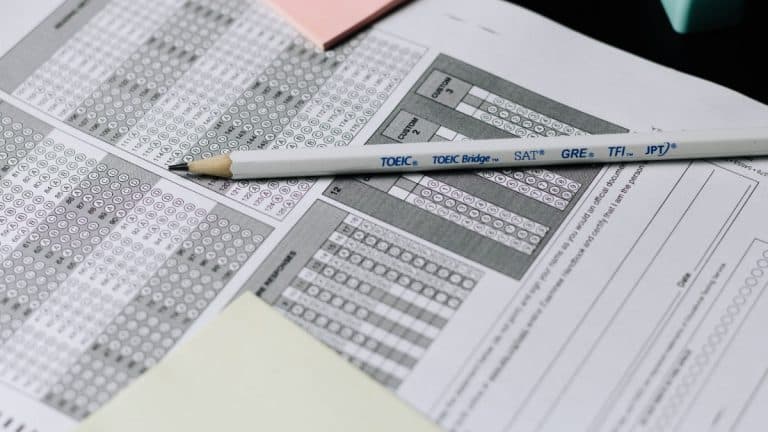
The International English Language Testing System (IELTS) is one of the most widely accepted English proficiency tests globally. Whether you’re planning to study, work, or migrate to Australia, achieving a good score on the IELTS test is crucial. Here’s a comprehensive guide to help you prepare effectively for the IELTS test in Australia.
Table of Contents
English exams
The most well-known and internationally recognized English tests are TOEFL and IELTS.
TOEFL
Test of English as a Foreign Language is a language test that aims to assess candidates’ knowledge of the English language. It is mainly passed through university exchanges in English-speaking universities. If you take it in your home country, you will usually be offered the Internet Based Test (IBT) (not the Paper Based Test). It tests candidates on their comprehension, expression, both in writing and orally. The TOEFL is scored out of 120 points and is valid for two years. The test is accepted by more than 11,000 universities and other institutions in over 190 countries.
IELTS
The International English Language Testing System (IELTS) is used for prospective workers, students or migrants to a country where English is the native language (Australia, Canada, New Zealand, UK, USA). This test will assess your ability to listen, read, write and speak in English. IELTS is graded on a scale of 1-9. Once passed, the test is valid for 2 years. In Australia, the IELTS test is administered by IDP Education Australia, British Council, and Cambridge Assessment English. The test measures the candidate’s ability to communicate effectively in English, including listening, reading, writing, and speaking skills.
Understanding the IELTS Test
The IELTS test is designed to assess your English language proficiency across four key areas:
- Listening: Evaluates your ability to understand spoken English in various contexts.
- Reading: Assesses your reading comprehension skills through different types of texts.
- Writing: Tests your ability to write effectively in English.
- Speaking: Measures your spoken English in a face-to-face interview.
There are two types of IELTS tests:
- IELTS Academic: Suitable for those applying for higher education or professional registration.
- IELTS General Training: Ideal for those migrating to Australia or applying for secondary education, training programs, or work experience.
Which IELTS test should I prepare?
Academic
The Academic test is intended for anyone wishing to study at either undergraduate or postgraduate level in Australia. This test assesses your level of English and therefore your ability to study and take courses in English at university. It is the Academic test that you will be asked if you wish to enroll in an Australian university.
General Training
The General Training test assesses your level of English in a more practical, everyday context. The texts of the tests are focused on work related topics or social situations. This is the test you will have to pass to work or to emigrate to a country when applying for a visa. All immigration authorities that require an English language test will accept IELTS.
In all cases, the test consists of four parts: listening, reading, writing and speaking. The first three parts take place in the same morning/day. The speaking part, on the contrary, can take place at a different time or even day than the other three exams.
The test format
IELTS Academic can be taken in a test centre on paper or computer. Since the pandemic, it can also be taken online from home. IELTS General Training can only be taken in a test centre (on paper or computer).
The Listening, Reading and Writing tests take 2 hours 40 minutes. There are no breaks between the different parts of the test.
Your Speaking test may be offered on the same day, or up to a week before or after.
Listening Part (40 minutes)
This part of the test lasts 40 minutes. You have 30 minutes listening + 10 minutes to transfer/check your answers.
The test consists of 4 parts with a total of 40 questions. A variety of question types are used (multiple choice, form/table completion, sentence completion). The recordings will play for the entire exam room. They are heard only once.
- Recording 1: a daily conversation between two people
- Recording 2: a person will describe something (eg the courses you can take at such a school, the activities offered by a travel agency etc).
- Third recording: a conversation between several people (up to 4) set in an educational context.
- Recording 4: a monologue on a slightly more complicated subject (eg environment, economy).

Reading Part (60 minutes)
This part lasts one hour. The test consists of several texts followed by questions (14 in general).
The texts will be different depending on the IELTS test you are taking. If you pass the Academic, you will generally have three texts. For general training, you can have up to 5 texts (often shorter).
In both cases, you will have to answer about 40 questions.
Writing (60 minutes)
The writing part lasts 1 hour and includes two tasks. These are different depending on the IELTS test you are taking.
For the academic, the first task is a diagram, a table or graph. You have to describe it, summarise or explain the information. For the second part of the writing, you will be asked to write an essay in response to an argument or problem.
For general training, in the first task, you must write a letter of at least 150 words. It can be to a friend, a family member, a banker. The tone will therefore be more or less formal depending on the person to whom you are writing. The second task is to write an essay on a simple topic.
Speaking (10 to 15 minutes)
This part takes place separately from the other tests. This is a face-to-face interview with an examiner that lasts up to 15 minutes.
At the beginning, the examiner will ask you fairly general questions about yourself, home, family etc. For the second part, the examiner gives you a topic to talk about. You will have 1 minute to reflect on this subject and take some notes. Then you will have to speak for 2 minutes. Finally, the examiner will ask you further questions about the subject covered previously. This part is more like a discussion.

Band score
All IELTS scores are between 0 and 9. You will receive detailed scores for each of the parts taken and an overall score within 15 days.
1 – Non user: the person is unable to speak English
2 – Intermittent user: The person has real difficulty understanding and speaking English
3 – Extremely limited user: the person can only communicate in simple situations
4 – Limited user: the person is not able to use this language in situations that go beyond the familiar framework
5 – Modest user: the person has an incomplete command of the language
6 – Competent user: the person has an effective command of the language
7 – Good user: the person has an operational command of the language
8 – Very good user: very good command of the language, only a few errors. This is a fluent level of English
9 – Expert user: the person has full command of the language. Level close to bilingualism.
How much does the test cost?
This test has a certain cost, so it is important to prepare well so as not to have to retake it in case of failure! The test costs $445 in Australia and approximately €300 in Europe. You can take the test as many times as you want. Once validated, the test is valid for 2 years.
Why should I pass the IELTS test ?
If you want to work, live or study in an English-speaking country, you must be able to demonstrate your level of English language. Indeed, universities, employers, or immigration services in Australia require proof of your level of English to recruit you, accept your school admission or even apply for a work visa.
In Australia or New Zealand, obtaining this test is mandatory to be admitted to university or TAFE as an international student. IELTS is also used to assess the English level of future migrants. It is the only test accepted by the immigration services for obtaining certain visas
Where to take the IELTS test?
In Europe
The British Council organizes exam sessions in several cities in Europe. Make sure you take the test at an authorized centre. Registration is done online on the British Council website. Plan to register several weeks in advance.
In Australia
The IELTS test is usually available in major cities across Australia, and candidates can choose from a range of test dates and locations. You can take the test at many approved centres across the country. Registration is also done online. Check directly on the IELTS website to choose your center and register to take the test. Plan to register several weeks in advance.
In any case, make sure you choose the IELTS test you are required to pass (Academic or General) when registering.
What score do I need to obtain?
The higher you can score, the better it is! Indeed the test results will reflect a better understanding and ability to communicate in English. Before taking your test and preparing for it, make sure you check the score required by your university or school.
The average to be achieved will depend on the school / university. This information may be found on your offer letter from the faculty.
To study at university, a minimum average of 6.5, with no less than 6 on each part is required. If you study at TAFE, a minimum average of 5.5, with at least a 5 in each module must be achieved.
For migration purposes, depending on the type of visa you are applying for, the average to be achieved will be different. For an application for permanent residency, a minimum score of 6 must be achieved in each module.
Tips to prepare for the test
Enroll in a Preparation Course: Consider enrolling in an IELTS preparation course. These courses are designed to provide structured learning and expert guidance.
Use Official Resources: Utilize official IELTS preparation materials, such as the Cambridge IELTS books and the British Council’s online resources. These materials are specifically tailored to the IELTS test.
Stay Calm and Confident: On the test day, stay calm and confident. Read the instructions carefully, manage your time effectively, and give your best effort in each section.
Practice Time Management: Each section of the IELTS test is timed. Practice completing tasks within the allotted time to improve your time management skills.
On the IELTS Test day
You will be given a date, time and location after booking your test. Indeed, your confirmation email will provide you with timings and procedures on the test day. Don’t be late or you may not be allowed to take the test.
You are not allowed to take food into the test room and you will only be allowed to take water. The IELTS test location staff will check your identity when you arrive. So don’t forget to bring your national identity card or passport.
It is important to note that the IELTS test is challenging, and candidates should aim to achieve a high score to increase their chances of admission to their desired institution or organization.
























